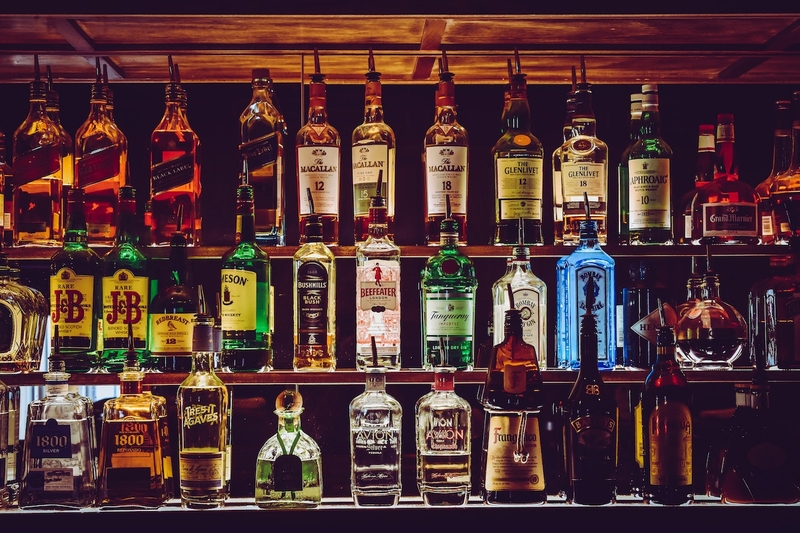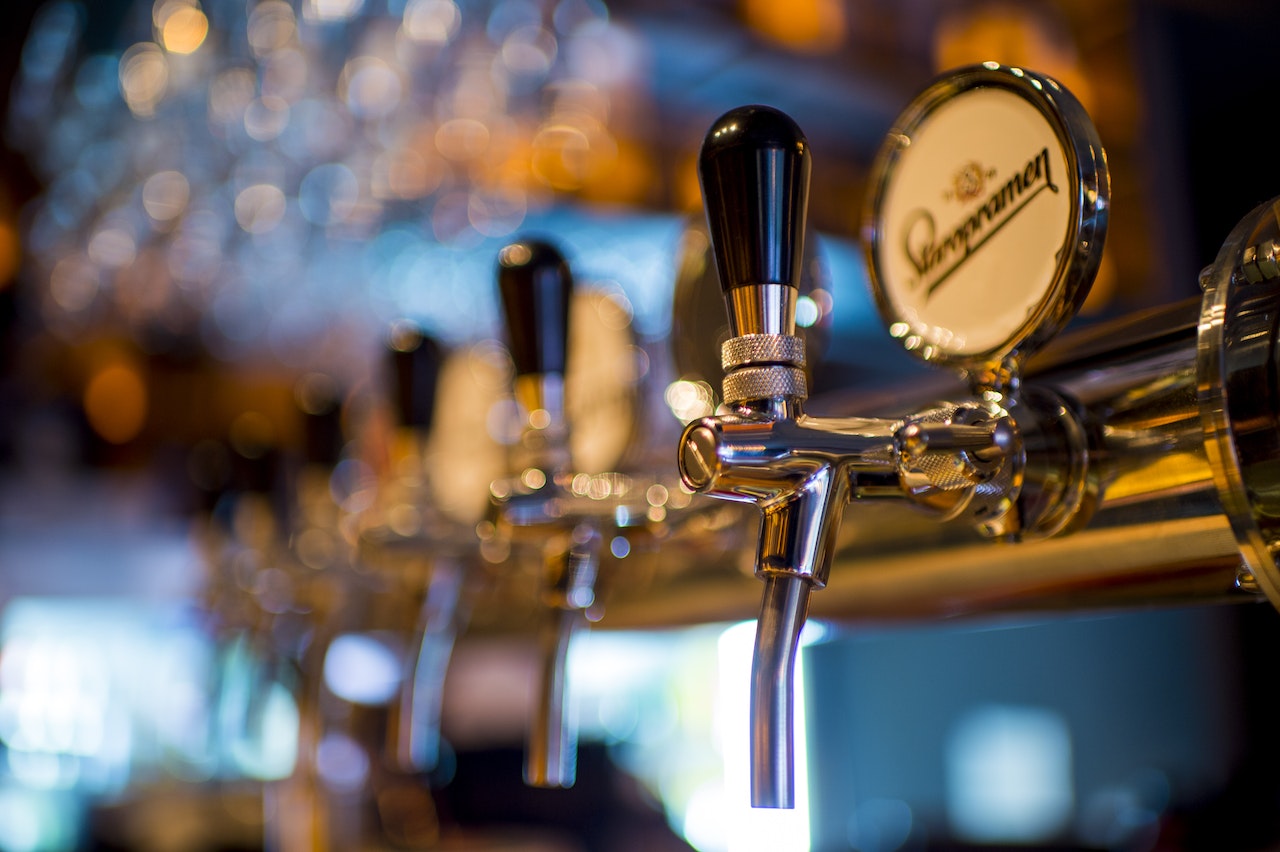The Essentials of RSA Certificate: Everything You Need to Know
"Responsible Service of Alcohol is not only a legal requirement, but it's also a moral responsibility to ensure the safety and wellbeing of customers." - Anonymous
Brief Insight
Responsible Service of Alcohol (RSA) is a training program designed to educate individuals who serve alcohol about the laws, risks, and responsibilities associated with serving alcohol. The goal of RSA is to promote the responsible service and consumption of alcohol and to prevent alcohol-related harm to individuals and the community.

PHOTO: https://www.pexels.com/uk-ua/@chris-f-38966/
Understanding the Importance of RSA Training
The Responsible Service of Alcohol (RSA) certificate is a nationally recognized training program that educates individuals who work in the hospitality industry, such as bartenders, servers, and security personnel, on the laws, risks, and responsibilities associated with serving alcohol. The training covers a range of topics, including the effects of alcohol on the body, strategies for managing alcohol-related incidents, and legal requirements for serving alcohol.
The goal of RSA training is to promote the responsible service and consumption of alcohol and to prevent alcohol-related harm to individuals and the community. RSA certificate holders are expected to demonstrate a high level of knowledge and understanding of the legal and ethical responsibilities associated with serving alcohol and to use this knowledge to ensure the safety and well-being of customers.
The RSA certificate is a legal requirement in many states in the USA for those working in licensed premises or events serving alcohol, and failure to hold a valid RSA certificate can result in fines and other penalties. The certificate is typically valid for a set period, usually between one to three years, after which individuals are required to renew their training to maintain their certification.
In summary, the Responsible Service of Alcohol certificate is a vital training program that ensures the safety and well-being of customers and promotes responsible alcohol consumption in the hospitality industry.
Interesting Facts
The first RSA program was introduced in Australia in the 1980s.
Some countries, such as Canada and the United States, have different RSA requirements depending on the state or province.
History and Development of RSA Certification in the USA
It is important to note that the Responsible Service of Alcohol (RSA) certificate is not a universal certification and does not exist in the same form in all countries. In the United States, for example, responsible service training and certification programs vary by state and are often referred to by different names.
In some states, responsible service training is mandatory for anyone who sells or serves alcohol, while in others it is voluntary. Additionally, the content and length of the training programs can also vary. Some states require as little as two hours of training, while others require much more extensive training and ongoing education.
The first state to mandate responsible alcohol service training in the United States was Utah, which introduced a mandatory training program for bartenders and servers in 1987. Since then, many other states have followed suit and introduced their own training and certification requirements.
For example, California requires all servers of alcoholic beverages to complete a state-approved Responsible Beverage Service (RBS) training program. The RBS program covers topics such as the effects of alcohol on the body, how to identify and handle potentially problematic situations, and the legal and social responsibilities of alcohol service providers.
Similarly, the state of Illinois requires all alcohol servers to complete a Beverage Alcohol Sellers and Servers Education and Training (BASSET) program, which is designed to promote responsible alcohol service and reduce alcohol-related problems. The program covers topics such as legal responsibilities, identifying and dealing with intoxicated customers, and strategies for preventing underage sales.
Overall, responsible alcohol service training and certification programs are becoming increasingly common in the United States, and are seen as an important tool for promoting responsible alcohol service and reducing the negative social and health effects of excessive alcohol consumption.

PHOTO: https://www.pexels.com/uk-ua/@andrea-mosti-448285903/
Administering Responsible Service of Alcohol Certificate
The administration of the Responsible Service of Alcohol (RSA) certificate can vary depending on the state or territory in which it is required.
To obtain an RSA certificate, an individual must typically complete a course that covers topics such as the effects of alcohol on the body, responsible serving practices, and strategies for managing alcohol-related incidents. The course may be delivered in a classroom setting, online, or through a combination of both.
After completing the course, the individual will be required to pass an assessment to demonstrate their knowledge and understanding of the material. Once they have successfully completed the assessment, they will receive their RSA certificate, which is typically valid for a set period of time (e.g., 3 years).
In some states and territories, there may be additional requirements for individuals to maintain their RSA certification, such as completing refresher courses or ongoing professional development.
Overall, the administration of the RSA certificate is overseen by the relevant government authority and is designed to ensure that individuals working in the hospitality industry have the knowledge and skills necessary to serve alcohol in a responsible manner.
Last Trends in RSA Certification
Technology is increasingly being used to deliver Responsible Service of Alcohol training, making it more convenient and accessible for learners. Online courses and mobile apps are being used to provide interactive training and assessments that can be completed at any time and from any location. Some training programs also use virtual reality technology to simulate real-life scenarios, allowing learners to practice their skills in a safe and controlled environment.
Benefits of Obtaining a Responsible Service of Alcohol Certificate
The Responsible Service of Alcohol (RSA) certificate is designed to promote the responsible service of alcohol in the hospitality industry. Here are some of the advantages and benefits of obtaining an RSA certificate:
- Legal compliance: In many countries, including Australia and the United States, it is a legal requirement for individuals working in licensed venues to hold an RSA certificate. By obtaining an RSA certificate, you are ensuring that you are meeting your legal obligations.
- Better job prospects: Holding an RSA certificate can make you more attractive to potential employers in the hospitality industry. It demonstrates that you have the knowledge and skills required to provide responsible service of alcohol, which is highly valued by employers.
- Increased earning potential: In some instances, individuals with an RSA certificate may be able to command higher wages due to their qualifications and expertise.
- Improved customer satisfaction: Responsible service of alcohol is essential to creating a safe and enjoyable environment for customers in licensed venues. By holding an RSA certificate, you will be equipped with the knowledge and skills required to provide excellent customer service while also ensuring that customers are drinking responsibly.
- Reduced risk of accidents and incidents: By promoting responsible service of alcohol, RSA certificate holders can help to reduce the risk of accidents and incidents occurring in licensed venues. This not only helps to keep customers safe, but it can also reduce the risk of legal and financial liabilities for employers.
Overall, obtaining an RSA certificate is an excellent investment for anyone working in the hospitality industry. It not only helps to ensure legal compliance but also provides numerous benefits to both individuals and employers in terms of improved job prospects, increased earning potential, better customer satisfaction, and reduced risk of accidents and incidents.

PHOTO: https://www.pexels.com/uk-ua/@chanwalrus/
Drawbacks and Limitations of the RSA Certificate
The disadvantages and limitations of the Responsible Service of Alcohol certificate can vary depending on the specific requirements and regulations of the state or territory where it is obtained. Some common limitations may include the cost of obtaining the certificate, the time required for training and certification, and the potential for varying state regulations that may not be transferable across borders. Additionally, the effectiveness of the RSA certificate in reducing incidents of alcohol-related harm may be limited if the training is not regularly updated or if it is not enforced by employers or licensing authorities.
Another potential disadvantage of the RSA certificate is that it may not fully address the complexities of alcohol-related harm, including issues related to mental health, addiction, and social determinants of health. Some critics argue that the focus on individual responsibility and compliance with regulations may overlook the broader social and environmental factors that contribute to alcohol misuse and related harms.
Despite these limitations, there are many potential benefits to obtaining an RSA certificate. For individuals, it can increase employability and job opportunities in industries that serve alcohol, such as hospitality and entertainment. For businesses, it can help reduce liability and insurance costs by demonstrating a commitment to responsible service practices. And for communities, it can contribute to a safer and healthier alcohol culture by promoting responsible attitudes and behaviors among both patrons and service providers.
In conclusion, while there are some limitations to the RSA certificate, the potential benefits of obtaining one outweigh the drawbacks. It can help promote responsible service practices, reduce liability and insurance costs, and contribute to a safer and healthier alcohol culture.
Tips for Responsible Service of Alcohol Certification
RAD (Responsible Alcohol Distribution): This course is designed for employees of distributors, wholesalers, and manufacturers of alcoholic beverages. It covers the legal and ethical responsibilities of these businesses and their employees, as well as best practices for ensuring responsible alcohol distribution.
RAMP (Responsible Alcohol Management Program): This course is required for all licensed establishments in Pennsylvania and covers topics such as recognizing signs of intoxication, identifying fake IDs, and handling difficult customers.
How to Apply for a Responsible Service of Alcohol Certificate
In the USA, the Responsible Service of Alcohol (RSA) certificate is often referred to as the Alcohol Server Permit or Alcohol Server Training. The process for obtaining an RSA certificate varies by state and can be administered by state regulatory agencies, local government, or third-party training providers. Generally, the following steps are involved in applying for an RSA certificate:
- Research the requirements: Look up the requirements for RSA certification in your state. Check what type of training program is required, the length of the program, and whether the training is available online or in person.
- Choose a training program: Find a state-approved training provider that offers an RSA certification course that meets your state's requirements. Many providers offer online courses that can be taken at your convenience.
- Register for the course: Register for the RSA certification course with the training provider of your choice. You will typically need to provide personal information and pay the course fee.
- Complete the course: Once you have registered for the course, you will need to complete the training within the timeframe allowed by your state. Depending on the state, the course may be self-paced or may have a set schedule. During the course, you will learn about the responsible service of alcohol, including topics such as recognizing signs of intoxication, preventing underage drinking, and handling difficult customers.
- Pass the exam: At the end of the course, you will need to pass an exam to demonstrate your understanding of the material covered. The exam format varies by state and provider, but may be online or in-person. You will need to achieve a passing score to obtain your RSA certificate.
- Receive your RSA certificate: Once you have passed the exam, you will receive your RSA certificate, which you may need to provide to your employer or regulatory agency as proof of certification.
It is important to note that RSA certification requirements can change, so it is a good idea to stay up-to-date with any changes to your state's regulations.

PHOTO: https://www.pexels.com/uk-ua/@magda-ehlers-pexels/
Topics Covered in Responsible Service of Alcohol Training
Responsible Service of Alcohol (RSA) training covers a variety of topics related to the safe and responsible serving of alcoholic beverages. The exact topics covered may vary depending on the training provider and the specific requirements of the state or region in which the training is being conducted. However, some of the most common topics covered in RSA training include:
- Legal requirements and regulations: RSA training typically covers the legal requirements and regulations governing the sale and service of alcohol in a particular state or region. This may include topics such as the minimum age for alcohol sales, ID requirements, and laws related to serving intoxicated patrons.
- Harm minimization strategies: RSA training aims to provide servers and sellers of alcohol with strategies to minimize harm to patrons and the community as a whole. This may include techniques for identifying and dealing with intoxicated patrons, strategies for managing conflict and difficult situations, and information on the effects of alcohol on the body and behavior.
- Duty of care and responsible service: RSA training emphasizes the duty of care that alcohol servers and sellers have to their patrons, and provides information on responsible service practices. This may include information on how to assess a patron's level of intoxication, how to prevent over-serving, and how to encourage responsible drinking.
- Communication skills: Effective communication is a key aspect of responsible alcohol service. RSA training may cover techniques for effective communication with patrons, including active listening, nonverbal communication, and conflict resolution.
- Incident management: RSA training provides servers and sellers with strategies for managing incidents that may occur in a licensed venue, such as fights or other disturbances. This may include information on emergency procedures, how to call for assistance, and how to provide appropriate first aid.
- Compliance and reporting: RSA training may also cover compliance and reporting requirements for licensed venues. This may include information on record-keeping requirements, incident reporting, and compliance checks.
Overall, the goal of RSA training is to equip servers and sellers of alcohol with the knowledge and skills they need to serve alcohol in a responsible and safe manner, while also complying with legal requirements and minimizing harm to patrons and the community.
Interesting Facts
The RSA certification has been shown to reduce the number of alcohol-related incidents and improve overall safety in licensed establishments.
In some countries, such as Australia, RSA training is required for any individual who wants to work in a licensed establishment, regardless of their role.
Consequences of Non-Compliance with Responsible Service of Alcohol Laws
Responsible Service of Alcohol (RSA) laws are designed to promote the safe and responsible consumption of alcohol, and non-compliance with these laws can result in penalties for both individuals and businesses. Penalties can vary depending on the state or territory, but they may include fines, license suspensions, and even criminal charges.
In general, penalties for individuals may include fines, community service, and potential imprisonment for more serious offenses such as serving alcohol to a minor or continuing to serve alcohol to an intoxicated patron. In some states, individuals may also be required to complete a remedial education program or attend a court-mandated alcohol awareness program.
Businesses that do not comply with RSA laws may also face significant penalties, including fines, suspension or revocation of their liquor license, and even forced closure of their establishment. The specific penalties and consequences for non-compliance can vary widely depending on the state or territory, as well as the severity and frequency of the violations.
It is important for both individuals and businesses to understand and comply with RSA laws to ensure the safety of patrons and promote responsible alcohol consumption. Training in responsible service of alcohol is designed to help individuals and businesses understand these laws and the potential consequences of non-compliance.

PHOTO: https://www.pexels.com/uk-ua/@pixabay/
Examples of US Establishments Requiring RSA Certification
In the USA, there are many establishments that require employees to have a Responsible Service of Alcohol certificate. These establishments include:
- Bars and Nightclubs: Bars and nightclubs are required to ensure that their staff has a Responsible Service of Alcohol certificate to serve alcohol to their patrons. This includes bartenders, waitstaff, and security personnel.
- Restaurants: Restaurants that serve alcohol must also ensure that their staff has a Responsible Service of Alcohol certificate. This applies to servers who take orders for alcohol, as well as kitchen staff who may be involved in the preparation of alcoholic beverages.
- Hotels and Resorts: Hotels and resorts that have bars, lounges, or restaurants on their premises must ensure that their staff is trained in the Responsible Service of Alcohol. This applies to the front desk staff, servers, bartenders, and other staff members who may be involved in the sale or service of alcohol.
- Sports Venues: Sports venues such as stadiums and arenas that sell alcohol to patrons are required to ensure that their staff has a Responsible Service of Alcohol certificate. This applies to vendors, bartenders, and other staff members who may be involved in the sale or service of alcohol.
- Liquor Stores: Liquor stores are required to ensure that their staff is trained in the Responsible Service of Alcohol. This applies to all staff members who may be involved in the sale of alcohol.
- Event Planning and Catering: Event planning and catering companies that serve alcohol must ensure that their staff has a Responsible Service of Alcohol certificate. This applies to all staff members who may be involved in the service or sale of alcohol at events such as weddings, corporate events, and other social gatherings.
It is important to note that the specific requirements for the Responsible Service of Alcohol certificate may vary depending on the state or jurisdiction in which the establishment is located.
Tips for Responsible Service of Alcohol Certification
ServSafe Alcohol: This course is offered by the National Restaurant Association and covers the basics of responsible alcohol service, including how to identify and deal with intoxicated customers.
TIPS (Training for Intervention ProcedureS): This course focuses on preventing intoxication, drunk driving, and underage drinking. It provides strategies for recognizing the signs of intoxication, refusing service, and handling difficult situations.
Differences between RSA Certificate and Liquor License
A Responsible Service of Alcohol (RSA) certificate and a liquor license are two separate things that are related to the sale and service of alcohol.
An RSA certificate is a certification that is granted to individuals who have completed a training course that educates them on responsible practices for serving alcohol. This certificate is mandatory in many jurisdictions and is required for anyone who is employed in a job that involves serving or selling alcohol. The training covers topics such as how to identify and handle intoxicated customers, how to prevent underage drinking, and how to serve alcohol responsibly.
A liquor license, on the other hand, is a legal document that is granted to establishments that wish to sell or serve alcohol. This license is issued by the state or local government and comes with a set of rules and regulations that the establishment must follow. The rules can include the hours during which alcohol can be served, the types of alcohol that can be sold, and the age at which customers can be served.
The key difference between an RSA certificate and a liquor license is that the former is focused on training and education for individual employees, while the latter is focused on the establishment as a whole. In some jurisdictions, having an RSA certificate is a requirement for an establishment to obtain a liquor license, as it demonstrates that the establishment takes responsible alcohol service seriously and is taking steps to prevent problems such as drunk driving and underage drinking.
In summary, an RSA certificate is a requirement for individuals who wish to work in jobs that involve serving or selling alcohol, while a liquor license is a requirement for establishments that wish to sell or serve alcohol. Both are important in promoting responsible alcohol service and reducing the risks associated with alcohol consumption.
- Responsible Service of Alcohol (RSA) certificate is a mandatory requirement for individuals working in the hospitality industry who sell or serve alcohol.
- RSA certificate programs cover topics such as alcohol laws and regulations, responsible serving practices, and identifying and managing intoxicated patrons.
- RSA certificates are administered by various government bodies and industry associations, and they typically require periodic renewal to ensure that workers stay up-to-date with best practices for responsible alcohol service.
FAQ
How long does it take to complete the Responsible Service of Alcohol training?
The length of time it takes to complete the Responsible Service of Alcohol training varies depending on the course provider and the format of the training. In some states and countries, the training can be completed online and can take anywhere from 2 to 6 hours to finish. In other states and countries, the training must be completed in-person and can take a full day or more.
Is the Responsible Service of Alcohol certificate transferable between states or countries?
The transferability of the Responsible Service of Alcohol certificate between states and countries depends on the specific requirements of each state or country. Some states and countries have reciprocity agreements that recognize the Responsible Service of Alcohol certificate issued in another state or country, while others do not. It is important to check with the regulatory authority in the state or country where the certificate will be used to determine if it is transferable.
Can employers require their employees to obtain a Responsible Service of Alcohol certificate?
Yes, employers in many states and countries can require their employees to obtain a Responsible Service of Alcohol certificate as a condition of employment. This is especially true for establishments that serve alcohol, such as bars, restaurants, and nightclubs. Some employers may even pay for their employees to take the training and obtain the certificate.
How often do Responsible Service of Alcohol certificates need to be renewed?
The frequency of renewal for Responsible Service of Alcohol certificates varies depending on the state or country where the certificate was issued. In some states and countries, the certificate is valid for 3 to 5 years, while in others, it must be renewed annually. It is important to check with the regulatory authority in the state or country where the certificate was issued to determine the renewal requirements.
What are some examples of establishments that require employees to have a Responsible Service of Alcohol certificate?
Examples of establishments that require employees to have a Responsible Service of Alcohol certificate include bars, restaurants, nightclubs, casinos, hotels, and event venues. In some states and countries, any establishment that serves alcohol is required to have at least one employee with a Responsible Service of Alcohol certificate on staff at all times.